All our past fellows
Throughout the years we have welcomed many great artists and researchers as fellows.

ifeoluwa aboluwade
Ifeoluwa Aboluwade is a literary scholar with a background in imperial and literary history, early modern English theatre, critical digital humanities, (trans)cultural translation and adaptation, black diaspora studies, postcolonial literary criticism, and gender and intersectionality. She works at the Africa Multiple Cluster of Excellence and is a lecturer at the University of Bayreuth. Ifeoluwa has received many international awards and fellowships, such as Fulbright and DAAD scholarships, most recently receiving the Shakespeare Association of America-Folger Shakespeare Library Short Term Fellowship (2022/2023).
At gd:c, Ifeoluwa is investigating the histories, patterns and genealogies (dis)connecting Shakespearean drama and early modern West Africa through the topoi of the trickster and warrior. Drawing on diverse texts, the project shows that comparing tricksters and warriors across both literary cultures engenders a deeper understanding of their historical and ongoing entanglements, recasting the significations and transcultural spectres that haunt Shakespeare. It will also illuminate the tension between absence and presence of early modern English performances, especially in terms of race, gender, and class.
Click HERE for a list of publications.
Click HERE to email Ifeoluwa.

ifeoluwa aboluwade
Click HERE to email Ifeoluwa.
Click HERE for a list of publications.
Cathrine Bublatzky is a media anthropologist and senior lecturer at the University of Tübingen. She researches diaspora and exile, archives, visual and digital media cultures, photography, art, activism, and the aesthetics and politics of belonging throughout Europe, South Asia and the Middle East. Cathrine authored Along the Indian Highway: An Ethnography of an International Travelling Exhibition, a monograph published by Routledge. Her project Contemporary Photography as Cultural Praxis of Iranians in the European Diaspora, which she will continue at global dis:connect, was awarded a scholarship by the Baden-Württemberg Foundation.
During her fellowship at global dis:connect, Cathrine will research a private archive of personal and political photographs from 20th-century Iranian exiles. Assuming that photographs are mobile, constantly connecting and disconnecting times, places and people, Cathrine is concerned with politically sensitive photographs from the archive of an Iranian exiled artist and activist, and the questions of why and how photography functions as a central medium for global communication, information and memory processes as well as identification and belonging in the exiles’ everyday. She inquires how archives and photography contain traces of time and belonging for their audiences in and beyond exile as a cultural field of simultaneously dis:connective and interruptive social interactions.
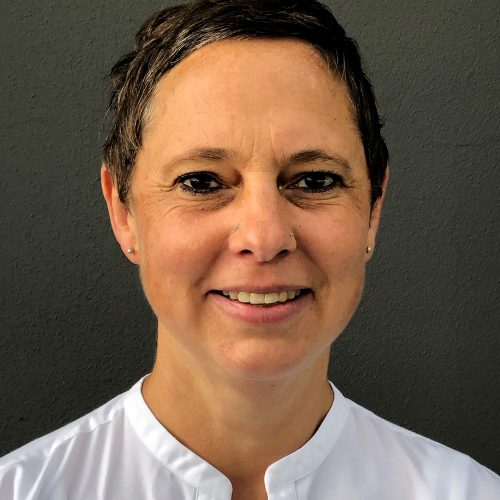
cathrine bublatzky
Cathrine Bublatzky is a media anthropologist and senior lecturer at the University of Tübingen. She researches diaspora and exile, archives, visual and digital media cultures, photography, art, activism, and the aesthetics and politics of belonging throughout Europe, South Asia and the Middle East. Cathrine authored Along the Indian Highway: An Ethnography of an International Travelling Exhibition, a monograph published by Routledge. Her project Contemporary Photography as Cultural Praxis of Iranians in the European Diaspora, which she will continue at global dis:connect, was awarded a scholarship by the Baden-Württemberg Foundation.
During her fellowship at global dis:connect, Cathrine will research a private archive of personal and political photographs from 20th-century Iranian exiles. Assuming that photographs are mobile, constantly connecting and disconnecting times, places and people, Cathrine is concerned with politically sensitive photographs from the archive of an Iranian exiled artist and activist, and the questions of why and how photography functions as a central medium for global communication, information and memory processes as well as identification and belonging in the exiles’ everyday. She inquires how archives and photography contain traces of time and belonging for their audiences in and beyond exile as a cultural field of simultaneously dis:connective and interruptive social interactions.
Click HERE for a list of publications.
Click HERE to email Cathrine.

cathrine bublatzky
Click HERE to email Cathrine.
Click HERE for a list of publications.
Cathrine Bublatzky is a media anthropologist and senior lecturer at the University of Tübingen. She researches diaspora and exile, archives, visual and digital media cultures, photography, art, activism, and the aesthetics and politics of belonging throughout Europe, South Asia and the Middle East. Cathrine authored Along the Indian Highway: An Ethnography of an International Travelling Exhibition, a monograph published by Routledge. Her project Contemporary Photography as Cultural Praxis of Iranians in the European Diaspora, which she will continue at global dis:connect, was awarded a scholarship by the Baden-Württemberg Foundation.
During her fellowship at global dis:connect, Cathrine will research a private archive of personal and political photographs from 20th-century Iranian exiles. Assuming that photographs are mobile, constantly connecting and disconnecting times, places and people, Cathrine is concerned with politically sensitive photographs from the archive of an Iranian exiled artist and activist, and the questions of why and how photography functions as a central medium for global communication, information and memory processes as well as identification and belonging in the exiles’ everyday. She inquires how archives and photography contain traces of time and belonging for their audiences in and beyond exile as a cultural field of simultaneously dis:connective and interruptive social interactions.
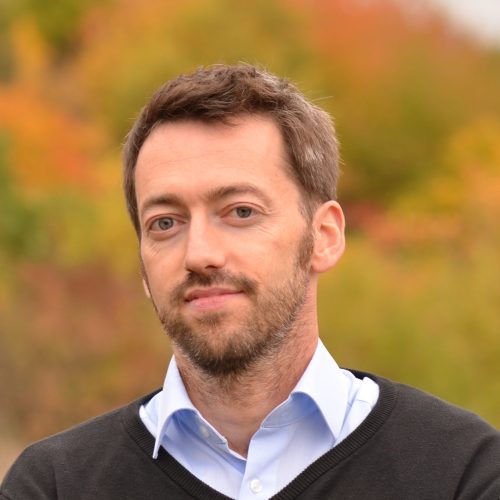
joël glasman
Joël Glasman focuses on West and Central Africa in the 20th century, particularly colonialism, governmentality, humanitarianism and the production of power as framed by praxis theory and science and technology studies. His publications inquire into social classifications produced by state institutions, international governmentality and private corporations. He further engages with the theory of global history, global norms and colonialism. His last book, Les humanités humanitaires. Manuel d’autodéfense à l’usage des volontaires (2023), reflects on the practical use of the humanities.
Joël’s project, Empire of waste, looks at imperialism as a regime of waste built on material exploitation and racial inequalities. Immobilisation, hiding and destruction of waste played a crucial role in imperial domination, as indicated by recent research on toxicity, waste dumping and radioactivity in Africa. It investigates two faces of the ‘Empire of Waste’. First, it analyses French corporate strategies of externalisation of waste and pollution. Second, it scrutinises forms of discard labour used by colonial corporations: forced labour, corvée, prison labour, wage labour, informal labour and child labour.
Click HERE for a list of publications.
Click HERE to email Joël.

joël glasman
Click HERE to email Joël.
Click HERE for a list of publications.
Joël Glasman focuses on West and Central Africa in the 20th century, particularly colonialism, governmentality, humanitarianism and the production of power as framed by praxis theory and science and technology studies. His publications inquire into social classifications produced by state institutions, international governmentality and private corporations. He further engages with the theory of global history, global norms and colonialism. His last book, Les humanités humanitaires. Manuel d’autodéfense à l’usage des volontaires (2023), reflects on the practical use of the humanities.
Joël’s project, Empire of waste, looks at imperialism as a regime of waste built on material exploitation and racial inequalities. Immobilisation, hiding and destruction of waste played a crucial role in imperial domination, as indicated by recent research on toxicity, waste dumping and radioactivity in Africa. It investigates two faces of the ‘Empire of Waste’. First, it analyses French corporate strategies of externalisation of waste and pollution. Second, it scrutinises forms of discard labour used by colonial corporations: forced labour, corvée, prison labour, wage labour, informal labour and child labour.
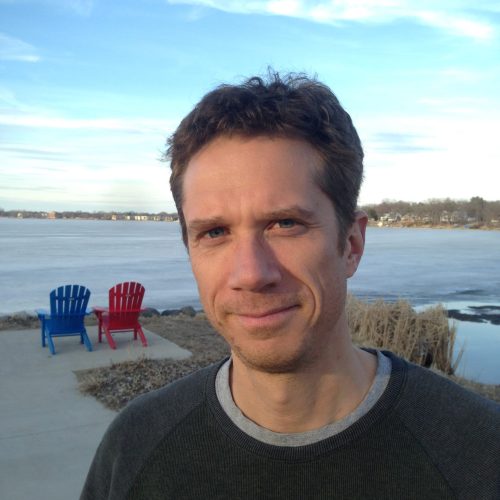
Judd C. Kinzley
Judd Kinzley is a professor of modern Chinese history at the University of Wisconsin-Madison. His research treats borderlands, materiality and natural resources. He is currently working on the transnational exchange of Chinese raw materials for cash, weapons and industrial goods during World War II. This work reveals the transnational networks that developed to finance, produce and transport such resources. These trans-Pacific networks channelled objects in both directions during the war and served as the blueprint of a new postwar international order.
Judd works in both Chinese and English, with experience researching in several archives in China, Taiwan, the United States and the United Kingdom.
Judd’s project at gd:c focuses on the legacies of Allied wartime oil exports to China, and how brought China, the Middle East, Southeast Asia, the United States and the European imperial powers together. Support of China’s war effort through deliveries of petroleum products relied on the transformation of global petroleum infrastructures that had long connected petroleum-producing regions to imperial metropoles, mostly in Western Europe. Oil transports from Burma and Iran into China during the war served as a detour, an “interruption” that bound the Middle East to the United States and East Asia, reshaping global energy flows.
Click HERE for a list of publications.
Click HERE to email Judd.

Judd C. Kinzley
Click HERE to email Judd.
Click HERE for a list of publications.
Judd Kinzley is a professor of modern Chinese history at the University of Wisconsin-Madison. His research treats borderlands, materiality and natural resources. He is currently working on the transnational exchange of Chinese raw materials for cash, weapons and industrial goods during World War II. This work reveals the transnational networks that developed to finance, produce and transport such resources. These trans-Pacific networks channelled objects in both directions during the war and served as the blueprint of a new postwar international order.
Judd works in both Chinese and English, with experience researching in several archives in China, Taiwan, the United States and the United Kingdom.
Judd’s project at gd:c focuses on the legacies of Allied wartime oil exports to China, and how brought China, the Middle East, Southeast Asia, the United States and the European imperial powers together. Support of China’s war effort through deliveries of petroleum products relied on the transformation of global petroleum infrastructures that had long connected petroleum-producing regions to imperial metropoles, mostly in Western Europe. Oil transports from Burma and Iran into China during the war served as a detour, an “interruption” that bound the Middle East to the United States and East Asia, reshaping global energy flows.

Nic Leonhardt
Nic Leonhardt is a theatre scholar and writer commenting on global theatre history; media, popular and visual cultures; and archiving and curating theatrical history. She has served as a senior researcher and fellow in multiple projects. Her latest monograph, Theatre Across Oceans. Mediators of Transatlantic Exchange (1890-1925), was published in 2021. She edits Global Theatre Histories and created the theatre history podcast Theatrescapes.
Nic is co-president of SIBMAS. Together with artist Reza Nassrollahi, she runs the global art and charity project 1001SOUL.
At global dis:connect, Nic will address the challenges of global theatre histories and the difficulties in understanding and writing a globally interconnected history of the performing arts. She will interrogate the gap between global and entangled histories, which are both shared and divided. This project invokes connections, disconnections and detours extending across research, knowledge transfer, methodology and epistemology.
Her research will cover two case studies on female theatre practitioners and networks in Europe and the USA (early 20th century) and in Iran (1940s and 1950s).
Click HERE for a list of publications.
Click HERE to email Nic.

Nic Leonhardt
Click HERE to email Nic.
Click HERE for a list of publications.
Nic Leonhardt is a theatre scholar and writer commenting on global theatre history; media, popular and visual cultures; and archiving and curating theatrical history. She has served as a senior researcher and fellow in multiple projects. Her latest monograph, Theatre Across Oceans. Mediators of Transatlantic Exchange (1890-1925), was published in 2021. She edits Global Theatre Histories and created the theatre history podcast Theatrescapes.
Nic is co-president of SIBMAS. Together with artist Reza Nassrollahi, she runs the global art and charity project 1001SOUL.
At global dis:connect, Nic will address the challenges of global theatre histories and the difficulties in understanding and writing a globally interconnected history of the performing arts. She will interrogate the gap between global and entangled histories, which are both shared and divided. This project invokes connections, disconnections and detours extending across research, knowledge transfer, methodology and epistemology.
Her research will cover two case studies on female theatre practitioners and networks in Europe and the USA (early 20th century) and in Iran (1940s and 1950s).
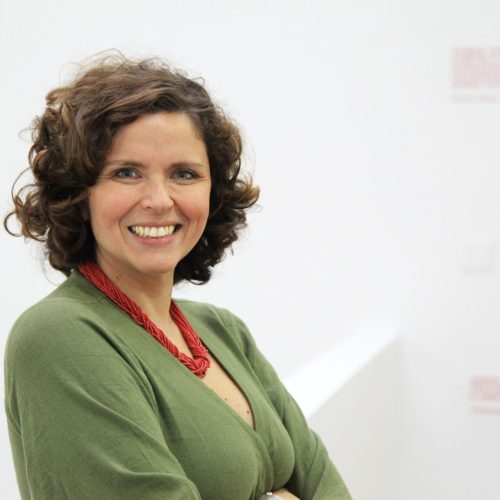
Sabrina Moura
Sabrina Moura is a researcher and curator from Brazil. She holds a Ph.D. in art history from the University of Campinas. She authored Arqueologia da Criação [Archeology of Creation, 2022] — a book on the work of Brazilian artist Rossini Perez — and edited Southern Panoramas: Perspectives for other geographies of thought (2015), which presents historical and artistic perspectives on the Global South. Her work has featured in Mousse Magazine, Zeitschrift für Kulturwissenschaften, Stedelijk Studies Journal, African Art, Critical Internventions, 3rd Text Africa, among others.
At global dis:connect, Sabrina is developing Travelling Back: reframing a Munich expedition to Brazil in the 19th century, a project that deals with contemporary visual and performative strategies focused on the restitution of absent agencies in the history of the natural sciences. This research analyses museological and display policies around collections that were gathered during 19th-century expeditions of exploration and are held in Munich institutions, integrating decolonial theories, exhibition histories and museum studies.
Click HERE for a list of publications.
Click HERE to email Sabrina.

Sabrina Moura
Click HERE to email Sabrina.
Click HERE for a list of publications.
Sabrina Moura is a researcher and curator from Brazil. She holds a Ph.D. in art history from the University of Campinas. She authored Arqueologia da Criação [Archeology of Creation, 2022] — a book on the work of Brazilian artist Rossini Perez — and edited Southern Panoramas: Perspectives for other geographies of thought (2015), which presents historical and artistic perspectives on the Global South. Her work has featured in Mousse Magazine, Zeitschrift für Kulturwissenschaften, Stedelijk Studies Journal, African Art, Critical Internventions, 3rd Text Africa, among others.
At global dis:connect, Sabrina is developing Travelling Back: reframing a Munich expedition to Brazil in the 19th century, a project that deals with contemporary visual and performative strategies focused on the restitution of absent agencies in the history of the natural sciences. This research analyses museological and display policies around collections that were gathered during 19th-century expeditions of exploration and are held in Munich institutions, integrating decolonial theories, exhibition histories and museum studies.
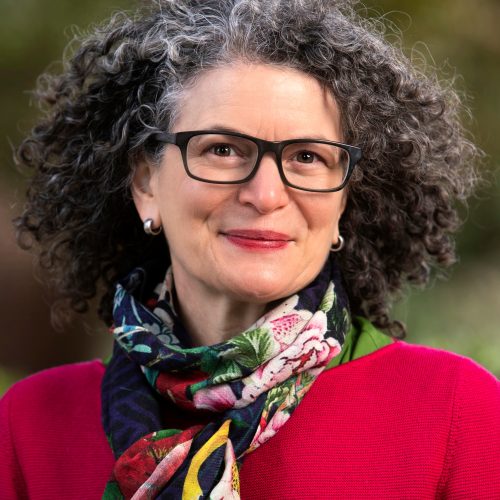
camille serchuk
Camille is a professor of art history at Southern Connecticut State University. She received her doctorate in art history from Yale in 1997, where she focused on images of medieval Paris. Since then, her research has focused primarily on the relationship between painting and mapmaking in late medieval and early modern Europe, with particular attention to the ways that artistic techniques and practices both enhanced and undermined the authority of cartography. The links between cartography and painting in 16th century France are also the subject of her recently completed book manuscript.
Her project, Border Control: Cartography and its Frames in Early Modernity, 1500-1650, explores how frames and border motifs animate early modern cartography and provide an interpretive lens for the mutable image of the world. Because knowledge of geography and sovereign boundaries were constantly in flux, frames enhanced the authority of maps that were almost immediately made obsolete by new exploration or conflict. As a new appraisal of the assertive role of the cartographic frame, the project will recuperate the agency of cartographic ornament, enhancing the legibility of early modern maps.
Click HERE for a list of publications.
Click HERE to email Camille.

camille serchuk
Click HERE to email Camille.
Click HERE for a list of publications.
Camille is a professor of art history at Southern Connecticut State University. She received her doctorate in art history from Yale in 1997, where she focused on images of medieval Paris. Since then, her research has focused primarily on the relationship between painting and mapmaking in late medieval and early modern Europe, with particular attention to the ways that artistic techniques and practices both enhanced and undermined the authority of cartography. The links between cartography and painting in 16th century France are also the subject of her recently completed book manuscript.
Her project, Border Control: Cartography and its Frames in Early Modernity, 1500-1650, explores how frames and border motifs animate early modern cartography and provide an interpretive lens for the mutable image of the world. Because knowledge of geography and sovereign boundaries were constantly in flux, frames enhanced the authority of maps that were almost immediately made obsolete by new exploration or conflict. As a new appraisal of the assertive role of the cartographic frame, the project will recuperate the agency of cartographic ornament, enhancing the legibility of early modern maps.
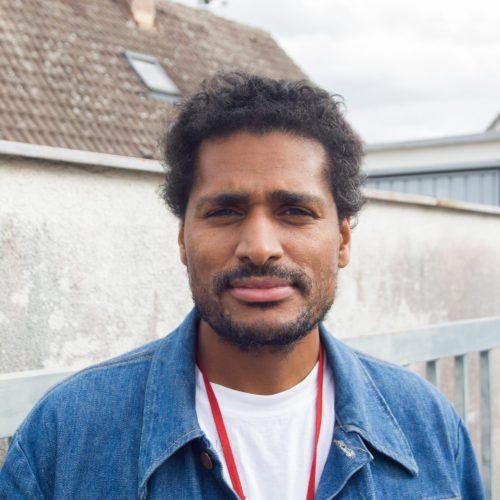
Julian Warner
artist fellow
Julian Warner is an artist and curator. He is the current artistic director of the Brechtfestival Augsburg and a performer and musician going by the stage name of Fehler Kuti. He is the editor of an anthology on questions regarding decolonial critique in Germany After Europe. Beiträge zur dekolonialen Kritik (Verbrecher Verlag, 2021) and was a visiting professor for dramaturgy at the Karlsruhe University of Arts and Design in 2022-23.
During his fellowship at global dis:connect, Julian will critically reflect on his curatorial practice, which positions itself at the intersection of globally circulating symbolic goods and locally specific contexts. Which contradictions and conflicts arise when international artists and projects engage with local institutions, audiences, and struggles? How may we further our understanding of such overdetermined constellations?
Click HERE to email Julian.

Julian Warner
artist fellow
Click HERE to email Julian.
Julian Warner is an artist and curator. He is the current artistic director of the Brechtfestival Augsburg and a performer and musician going by the stage name of Fehler Kuti. He is the editor of an anthology on questions regarding decolonial critique in Germany After Europe. Beiträge zur dekolonialen Kritik (Verbrecher Verlag, 2021) and was a visiting professor for dramaturgy at the Karlsruhe University of Arts and Design in 2022-23.
During his fellowship at global dis:connect, Julian will critically reflect on his curatorial practice, which positions itself at the intersection of globally circulating symbolic goods and locally specific contexts. Which contradictions and conflicts arise when international artists and projects engage with local institutions, audiences, and struggles? How may we further our understanding of such overdetermined constellations?
Associated Fellows
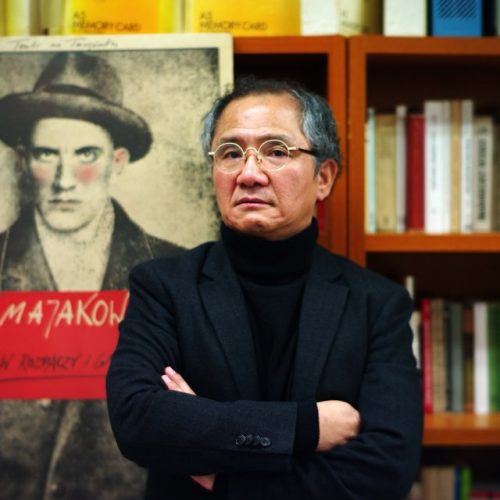
jie-hyun lim
munich centre for global history
Jie-Hyun Lim holds the CIPSH Chair of Global Easts and is a founding director of the Critical Global Studies Institute at Sogang University. He has published on nationalism, Marxism, Polish history, transnational history and global memory. He is a principal investigator of the Mnemonic Solidarity: Colonialism, War and Genocide in the Global Memory Space (2017-2024) research project and edits the Entangled Memories in the Global South series among others. His recent books include Victimhood Nationalism-Global History and Memory (2024), Opfernationalismus. Erinnerung und Herrschaft in der postkolonialen Welt (2024) and Global Easts: Remembering, Imagining, Practicing (2022).
During his fellowship at gd:c, he will work on multilingual versions of victimhood nationalism as a conceptual tool to illustrate competing memories of victimhood in the postwar Vergangenheitsbewältigung across Europe and East Asia. By drawing on the entangled past of the political and cultural production, representations, consumption and distribution of victimhood memories between Korea and Japan, and between Poland, Germany and Israel, my book traces the global trajectory of victimhood nationalism.
Click HERE for a list of publications.
lick HERE to email Jie-Hyun.

jie-hyun lim
munich centre for global history
lick HERE to email Jie-Hyun.
Click HERE for a list of publications.
Jie-Hyun Lim holds the CIPSH Chair of Global Easts and is a founding director of the Critical Global Studies Institute at Sogang University. He has published on nationalism, Marxism, Polish history, transnational history and global memory. He is a principal investigator of the Mnemonic Solidarity: Colonialism, War and Genocide in the Global Memory Space (2017-2024) research project and edits the Entangled Memories in the Global South series among others. His recent books include Victimhood Nationalism-Global History and Memory (2024), Opfernationalismus. Erinnerung und Herrschaft in der postkolonialen Welt (2024) and Global Easts: Remembering, Imagining, Practicing (2022).
During his fellowship at gd:c, he will work on multilingual versions of victimhood nationalism as a conceptual tool to illustrate competing memories of victimhood in the postwar Vergangenheitsbewältigung across Europe and East Asia. By drawing on the entangled past of the political and cultural production, representations, consumption and distribution of victimhood memories between Korea and Japan, and between Poland, Germany and Israel, my book traces the global trajectory of victimhood nationalism.

peter becker
munich centre for global history
Peter Becker is a professor of Austrian History in Vienna. Before joining the University of Vienna, he was a professor in European History at the EUI in Florence. His research covers criminology as discourse and institutional practice, state building, governance and public administration, with a focus on the interplay between regional and national actor networks, global policy formation and international organisations: Remaking Central Europe (2020), edited with N. Wheatly in 2020 and A World of Contradictions: Globalization and Deglobalization in Interwar Europe (2023), ed. with T. Zahra.
Recent crises have brought the role of states into focus. The state’s scope of action has expanded, even though states are less sovereign than reliant on engagement with international organizations and collaboration with national and regional interest groups in these crises. My project uses these observations for a history of crisis management by modern states in a complex multi-level system, in which international state and non-state actors act together with governments of individual states, their expert committees, and local and regional networks of actors. I begin looking at the transformation crisis after the Great War and how the League responded to it.
Click HERE for a list of publications.
Click HERE to email Peter.

peter becker
munich centre for global history
Click HERE to email Peter.
Click HERE for a list of publications.
Peter Becker is a professor of Austrian History in Vienna. Before joining the University of Vienna, he was a professor in European History at the EUI in Florence. His research covers criminology as discourse and institutional practice, state building, governance and public administration, with a focus on the interplay between regional and national actor networks, global policy formation and international organisations: Remaking Central Europe (2020), edited with N. Wheatly in 2020 and A World of Contradictions: Globalization and Deglobalization in Interwar Europe (2023), ed. with T. Zahra.
Recent crises have brought the role of states into focus. The state’s scope of action has expanded, even though states are less sovereign than reliant on engagement with international organizations and collaboration with national and regional interest groups in these crises. My project uses these observations for a history of crisis management by modern states in a complex multi-level system, in which international state and non-state actors act together with governments of individual states, their expert committees, and local and regional networks of actors. I begin looking at the transformation crisis after the Great War and how the League responded to it.

Catherine Gidney
munich centre for global history
Catherine Gidney is an adjunct research professor of history at St. Thomas University in Fredericton, N.B., Canada. Her research focuses on the intersection of the history of education and other fields such as youth culture, health and religion in 20th-century Canada. She most recently authored Captive Audience: How Corporations Invaded Our Schools (Between the Lines, 2019) and co-edited Feeling Feminism: Activism, Affect, and Canada’s Second Wave (UBC Press, 2022). In 2016 she was elected to the Royal Society of Canada’s College of New Scholars, Artists, and Scientists.
Catherine’s current research focuses on the history of the modern mindfulness movement. She is particularly interested in the transformation of mindfulness from a primarily countercultural and individual practice to one prominently featured in global corporations. Her research aims to shed light not only on the origins and spread of the mindfulness movement, but also on the role and implications of this movement in the processes of cultural globalisation.
Click HERE for a list of publications.
Click HERE to email Catherine.

Catherine Gidney
munich centre for global history
Click HERE to email Catherine.
Click HERE for a list of publications.
Catherine Gidney is an adjunct research professor of history at St. Thomas University in Fredericton, N.B., Canada. Her research focuses on the intersection of the history of education and other fields such as youth culture, health and religion in 20th-century Canada. She most recently authored Captive Audience: How Corporations Invaded Our Schools (Between the Lines, 2019) and co-edited Feeling Feminism: Activism, Affect, and Canada’s Second Wave (UBC Press, 2022). In 2016 she was elected to the Royal Society of Canada’s College of New Scholars, Artists, and Scientists.
Catherine’s current research focuses on the history of the modern mindfulness movement. She is particularly interested in the transformation of mindfulness from a primarily countercultural and individual practice to one prominently featured in global corporations. Her research aims to shed light not only on the origins and spread of the mindfulness movement, but also on the role and implications of this movement in the processes of cultural globalisation.
Archive past fellows






